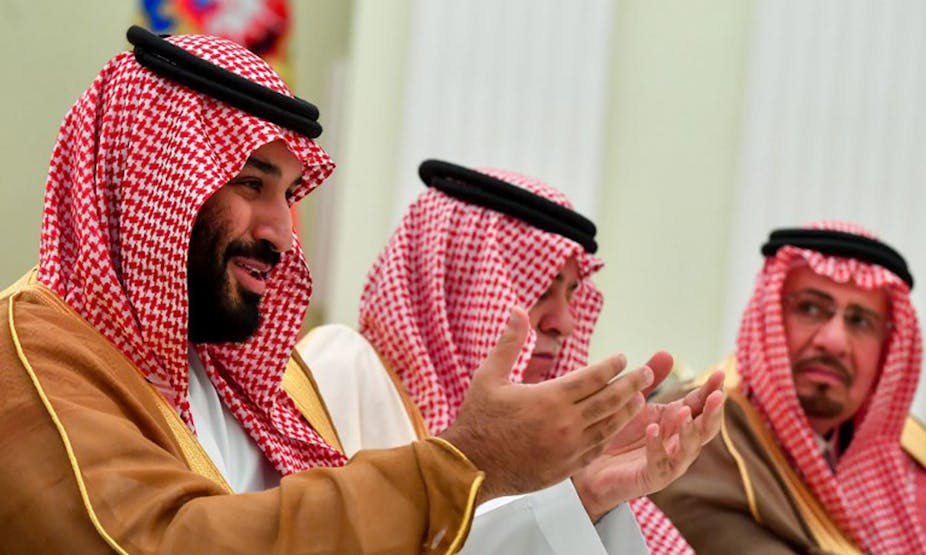The Jerusalem Islamic Waqf, the religious trust overseeing Al-Aqsa Mosque and the Dome of the Rock, has been under Jordanian custodianship for decades. However, in recent years, discussions have surfaced regarding whether Saudi Arabia should take over its management. This proposal arises in the context of regional power struggles, normalization agreements, and Saudi Arabia’s aspirations for a greater role in Islamic affairs. While some argue that Saudi control could bring increased financial and diplomatic stability, others warn of potential geopolitical consequences.
Since 1948, the administration of the Jerusalem Islamic Waqf has been under Jordanian oversight. After Israel’s occupation of East Jerusalem in 1967, Jordan and Israel reached an understanding that allowed the Waqf to continue managing Al-Haram Al-Sharif despite Israel’s overall control of the city. This arrangement was formalized in the 1994 Jordan-Israel peace treaty, which recognized Jordan as the custodian of Islamic holy sites in Jerusalem. Meanwhile, Saudi Arabia, as the guardian of Islam’s two holiest sites in Mecca and Medina, has long maintained a central role in the Muslim world. More recently, Riyadh has sought to expand its influence over religious affairs beyond its borders, and the idea of Saudi oversight over the Jerusalem Waqf has gained traction in the context of the Abraham Accords and Saudi-Israeli rapprochement.
One of the primary reasons for opposing Saudi management of the Waqf is the potential impact on Israel’s security. The status quo at Al-Aqsa is already a source of frequent tensions, and introducing a new stakeholder could further destabilize the situation. Saudi Arabia’s political ambitions and alliances differ from those of Jordan, and its involvement could complicate Israel’s ability to manage security at the site. Unlike Jordan, which has maintained a stable relationship with Israel regarding the Waqf, Saudi Arabia’s custodianship could introduce new risks, including the possibility of increased radicalization and external influence over the mosque’s administration.
Saudi Arabia’s involvement in managing the Jerusalem Islamic Waqf presents significant risks, particularly regarding Israel’s security and regional stability. Jordan’s custodianship, despite its flaws, remains preferable to handing control over to a country with a history of religious radicalism. However, the mismanagement of the Waqf by Jordan suggests the need for an alternative framework. A coalition of moderate Muslim nations could provide a balanced and effective approach, ensuring that religious governance is conducted in a way that maintains peace, respects Islamic traditions, and safeguards Israel’s security interests. Introducing Saudi Arabia as a new player could lead to increased tensions, embolden extremist factions, and complicate Israel’s security operations. Given these factors, a multilateral approach is the best path forward to ensuring long-term stability and protecting the delicate balance in Jerusalem.
Complete Article

 blogs.timesofisrael.com
blogs.timesofisrael.com
Since 1948, the administration of the Jerusalem Islamic Waqf has been under Jordanian oversight. After Israel’s occupation of East Jerusalem in 1967, Jordan and Israel reached an understanding that allowed the Waqf to continue managing Al-Haram Al-Sharif despite Israel’s overall control of the city. This arrangement was formalized in the 1994 Jordan-Israel peace treaty, which recognized Jordan as the custodian of Islamic holy sites in Jerusalem. Meanwhile, Saudi Arabia, as the guardian of Islam’s two holiest sites in Mecca and Medina, has long maintained a central role in the Muslim world. More recently, Riyadh has sought to expand its influence over religious affairs beyond its borders, and the idea of Saudi oversight over the Jerusalem Waqf has gained traction in the context of the Abraham Accords and Saudi-Israeli rapprochement.
One of the primary reasons for opposing Saudi management of the Waqf is the potential impact on Israel’s security. The status quo at Al-Aqsa is already a source of frequent tensions, and introducing a new stakeholder could further destabilize the situation. Saudi Arabia’s political ambitions and alliances differ from those of Jordan, and its involvement could complicate Israel’s ability to manage security at the site. Unlike Jordan, which has maintained a stable relationship with Israel regarding the Waqf, Saudi Arabia’s custodianship could introduce new risks, including the possibility of increased radicalization and external influence over the mosque’s administration.
Saudi Arabia’s involvement in managing the Jerusalem Islamic Waqf presents significant risks, particularly regarding Israel’s security and regional stability. Jordan’s custodianship, despite its flaws, remains preferable to handing control over to a country with a history of religious radicalism. However, the mismanagement of the Waqf by Jordan suggests the need for an alternative framework. A coalition of moderate Muslim nations could provide a balanced and effective approach, ensuring that religious governance is conducted in a way that maintains peace, respects Islamic traditions, and safeguards Israel’s security interests. Introducing Saudi Arabia as a new player could lead to increased tensions, embolden extremist factions, and complicate Israel’s security operations. Given these factors, a multilateral approach is the best path forward to ensuring long-term stability and protecting the delicate balance in Jerusalem.
Complete Article

The Blogs: Why Saudi Arabia Should Not Manage the Jerusalem Islamic Waqf
From the blog of Amine Ayoub at The Times of Israel

